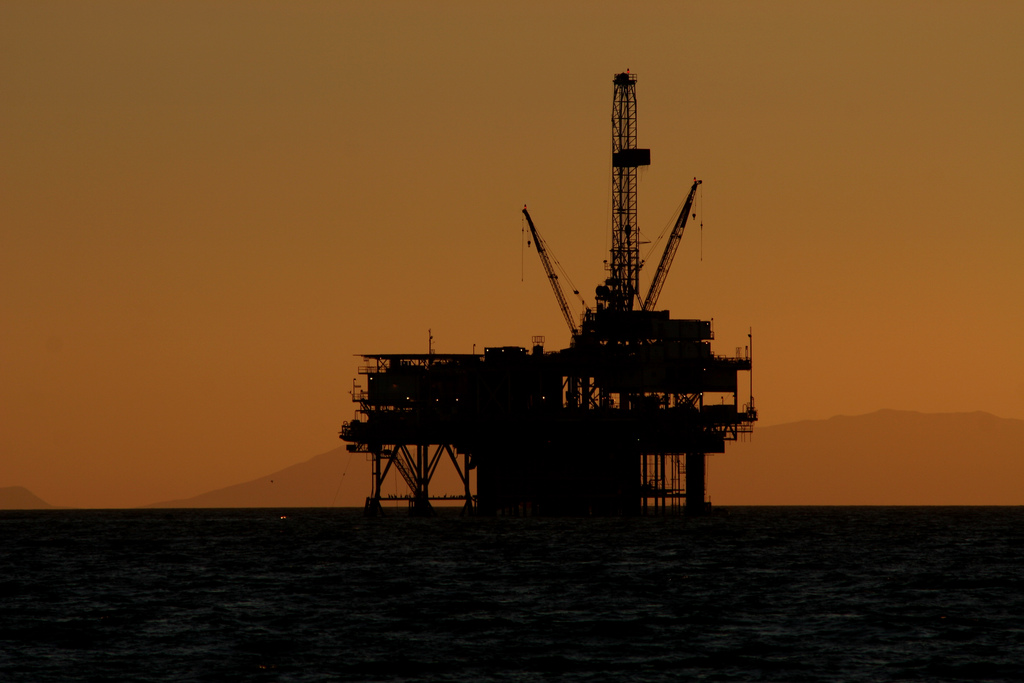McCain’s Balancing Act on Energy
Sen. John McCain is left of the GOP base when it comes to the environment. But though he may draw in independents and moderate Democrats, can he hold on to his party base?
Jul 31, 202055.2K Shares1M Views
(Flickr: arbyreed)
This is the second part of a two-part series on the political parties and energy. Part 1focused on the Democrats.
While the financial crisis on Wall Street has put the faltering economy at the center of the presidential campaign, the see-sawing price of crude oil is still a big concern. The passage of a $700-billion financial bailout plan by Congress has made the future of highly volatile oil markets even more uncertain. Since the announcement of the plan, oil prices have fluctuated tremendouslyfrom one day to the next, reaching as high as $106 a barrel and — as of today — as low as $90 a barrel.
The high cost of gasoline is just one more economic burden that Americans are dealing with now. As a result, energy prices and U.S. dependence on foreign oil could remain pressing concerns for most voters, as the pollsindicate.
Illustration by: Matt Mahurin
Many of Sen. John McCain’s answers to the country’s energy crisis, however, clash with the views of the GOP’s conservative GOP base. But some of the positions that his party stalwarts strongly oppose — including introducing climate legislation and keeping the Arctic National Wildlife Refuge off-limits to drilling — appeal to the independent and moderate Democratic voters whom McCain needs to win in November. Can the Republican nominee continue to run to the left of the GOP base and still hold on to its support?
To be sure, the majority of Republicans prefer McCain’s energy plan to that of Sen. Barack Obama, his Democratic opponent. “The things that distinguish him from Obama would be that he’s more enthusiastic about drilling in the outer continental shelf and about nuclear power,” said David Kreutzer, an energy analyst for the Heritage Foundation, a conservative policy organization.
While McCain might be “more enthusiastic” about drilling, Obama has saidthat he will support opening off-limits coastal areas to drilling as part of a larger energy package. Neither he nor McCain favored expanded offshore drilling until this summer — when gasoline surged above $4 a gallon.
By contrast, McCain has consistently trumpeted nuclear energy and has proposedfederal subsidies to build new plants. He says he wants to build 45 new nuclear power plants by the year 2030, though some nuclear energy experts aren’t surethat’s possible. There are currently 33 nuclear plantsin the U.S., some with more than one reactor.
But on other energy-related issues, McCain runs against the GOP conservative mainstream, including his running mate, Alaska Gov. Sarah Palin, and President George W. Bush. Chief among these differences is the fact that McCain does not support drilling in the Arctic National Wildlife Refuge in Alaska.
McCain also disagrees with much of his party base when he says that human activity affects global climate. He introduced legislation last year to reduce greenhouse-gas emissions to 2000 levels by 2010.
“He’s clearly not in the mainstream of the Republican Party when it comes to the global warming and environment stuff,” said Kreutzer. Many conservatives opposed the Arizona senator’s bill, the Lieberman-McCain Climate Stewardship Act, that proposes a carbon cap-and-trade system to reduce greenhouse-gas emissions. “He’s going to have to pull the Republicans along on that one,” Kruetzer said.
But not all Republicans need to be pulled along. Some young Republicans want to see McCain take stronger stands on environmental issues like climate change. “Young people are ready to see some new direction on energy,” Ethan Eilon, executive director of the College Republicans, said. “They want to see a balance in protecting our environment and making sure we do things in a climate-neutral way…[while] making sure we’re not hamstringing ourselves economically by being beholden to environmentalists.”
Eilon says young Republicans believe that developing solar, wind and hydro energy should be a GOP priority. “[Renewable energy] was first embraced by the younger segment of our party,” he said. “We understand the technology a little bit better.”
He backs McCain’s proposal to invest in technology to improve the way battery-operated vehicles run and to provide tax credits for consumers who buy low-carbon-emission cars. “Younger people, in general,” Eilon said, “are optimistic about the free-market possibilities for getting these types of projects completed.”
College Republicans do agree that more offshore drilling is an appropriate short-term response to high gasoline prices, Eilon said. They’re not alone. According toRasmussen Reports, 42 percent of Americans polled think offshore oil drilling will reduce the price of oil — despite the government datathat finds the opposite to be true.
More conservation-minded Republicans are equally supportive of McCain’s environmental views. They especially admire his flexibility on offshore drilling. “I think what Sen. McCain is saying,” said Jim DiPeso, policy director of the advocacy group Republicans for Environmental Protection, “is for states that do not want [drilling], he is not going to shove it down their throats.”
While McCain has not suggested that states should be forced to open their coasts to drilling, his rhetoric hasn’t exactly made that distinction. At a recent rally in Florida, for example, he said, “Drill, baby, drill!” — causing the crowd to begin chanting the phrase. (And Palin was clearly delighted to use the term in the vice presidential debate on Thursday night.)
Unlike the College Republicans, the political activist group Republicans for Environmental Protectiondoesn’t think offshore drilling is a short-term answer to easing high gas prices — though is open to compromise on the issue in the context of larger package to reduce the country’s dependence on foreign oil.
But like the College Republicans, it supports diversifying the country’s energy sources. “It’s almost like the conservative approach to investing,” DiPeso said. “You don’t want to put all your eggs in one basket. You want to diversify.”
While Republicans for Environmental Protection are happy to see that the party’s platform does not call for Arctic drilling and believes that humans are not carbon-neutral, more right-leaning Republicans are less than thrilled to see their party moving in such a direction.The question is whether McCain can hold onto these GOP voters who don’t want environmental concerns interfering with energy-development policies, while at the same time attract voters who insist that the country’s environmental and energy interests should be balanced.

Rhyley Carney
Reviewer
Latest Articles
Popular Articles

